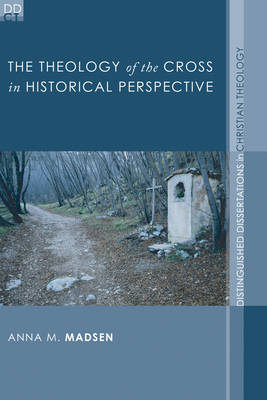
- Retrait gratuit dans votre magasin Club
- 7.000.000 titres dans notre catalogue
- Payer en toute sécurité
- Toujours un magasin près de chez vous
- Retrait gratuit dans votre magasin Club
- 7.000.0000 titres dans notre catalogue
- Payer en toute sécurité
- Toujours un magasin près de chez vous
Description
The theology of the cross is indisputably a trendy concept today. Numerous seminars, books, and dissertations tackle the topic. But The Theology of the Cross in Historical Perspective demonstrates that theology of the cross is no passing fancy. Theologies of the cross appear at the beginnings of the church, in the sixteenth-century reformations of the church, and in the more contemporary modernization of the church. Without theologies of the cross, what the church is called to be and to preach becomes unclear. So then, what is the theology of the cross? Anna Madsen surveys the theology of the cross in the thinking of Paul and Luther. She also outlines several important twentieth-century contributions to the subject. On the basis of her analysis, Madsen suggests that the theology of the cross reveals God to be found even in death. In death, after all, boundaries disappear. The theology of the cross assures Christians that God is present in the death of sin and in the realities of suffering and uncertainty. Given that it announces God's presence, the theology of the cross is ultimately a theology of grace, freedom, and trust.
Spécifications
Parties prenantes
- Auteur(s) :
- Editeur:
Contenu
- Nombre de pages :
- 274
- Langue:
- Anglais
- Collection :
- Tome:
- n° 1
Caractéristiques
- EAN:
- 9781597528351
- Date de parution :
- 01-01-07
- Format:
- Livre broché
- Format numérique:
- Trade paperback (VS)
- Dimensions :
- 161 mm x 229 mm
- Poids :
- 390 g

Les avis
Nous publions uniquement les avis qui respectent les conditions requises. Consultez nos conditions pour les avis.






